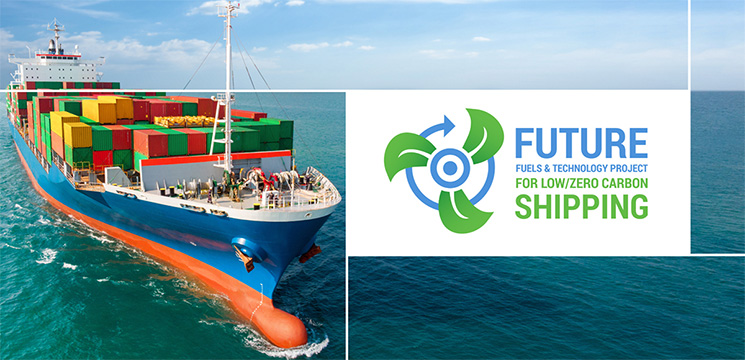 Pic.: International Maritime Organization (IMO)
Pic.: International Maritime Organization (IMO)
It is fantastic! On one side is a bloc led by the EU and China; on the other, a US-led group that includes Russia, Iran, Venezuela, Iraq, and several Gulf states!..
EU defies Trump on shipping emissions – but experts doubt the deal can sail without US support, ‘Euractiv’ writes.
This week in London, European Commission President Ursula von der Leyen may – perhaps for the first time – say “no” to the second Trump administration in Washington, by standing by a UN deal to cut greenhouse gas emissions from global shipping.
Over the weekend, the US threatened sanctions against any countries or public officials – and that would include EU members – that support the plan to cut emissions from maritime transport from 3% of the world’s total to net zero.
The EU promptly reaffirmed, in a very brief statement, its intention to stand by the deal. Sources within the Commission have now told Euractiv that von der Leyen had been consulted and personally backed a firm line – signalling a willingness to take political risks that has arguably been absent in recent dealings with Washington.
If confirmed, this could be the first time von der Leyen has openly defied the second Trump administration after a series of concessions – including a recent trade agreement that saw the EU accept 15% tariffs on most exports to the US.
Net-zero shipping
On Thursday, governments are due to adopt a new Net Zero Framework within the International Maritime Organization (IMO), a UN body based in London whose Marine Environment Protection Committee (MEPC) is meeting this week, ostensibly to rubber-stamp what is considered a done deal.
The framework would force ship operators who keep using the dirtiest – and cheapest – fuels to pay a gradually increasing carbon price, proportional to their excess CO2 pollution. Crucially, emissions would be measured across the entire fuel lifecycle – from production to transport – weakening the case for liquefied natural gas (LNG) as a “cleaner” transitional fuel.
The United States supports LNG as a stepping stone in the energy transition, but the proposed framework would prioritise low-carbon alternatives such as hydrogen and synthetic e-fuels derived from renewable energy. This would favour countries like China, which have invested heavily in these technologies – placing the European Union once again between Washington and Beijing in a geopolitical tug-of-war.
Two opposing camps have emerged – camps that do not reflect traditional global alliances politically. On one side is a bloc led by the EU and China; on the other, a US-led group that includes Russia, Iran, Venezuela, Iraq, and several Gulf states.
Within the EU, maritime nation Greece initially supported the US position. However, sources have told Euractiv that Athens is unlikely to break EU unity in the final vote.
Commission’s ‘green geeks’
In practice, however, von der Leyen’s nein may prove more symbolic than substantive, regardless of any potential retaliation by the White House.
Industry experts told Euractiv there is little chance the deal, as it stands now, could ever being implemented effectively without US participation – and von der Leyen knows this. The general framework would need to be followed by a complex web of regulatory agreements, and the present fragile majorities may not hold.
Meanwhile, von der Leyen has promised Trump that Europe will purchase approximately $750 billion worth of US energy – including LNG – in order to avoid further US tariffs.
Now, if Europe supports the IMO deal, that commitment could come under threat. US officials have warned that ships flagged by countries endorsing the deal may face punitive levies – or even be denied access to American ports.
And if the EU fails to follow through on its energy purchases, it risks facing a new round of trade tariffs from Washington.
Behind the scenes, tensions are rising. Euractiv has learned that US officials are accusing a group of “green geeks” within the European Commission of pushing environmental policies that are detached from reality.
read more in our Telegram-channel https://t.me/The_International_Affairs

 11:25 17.10.2025 •
11:25 17.10.2025 •






















